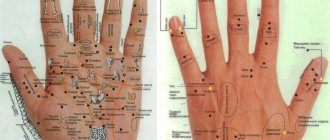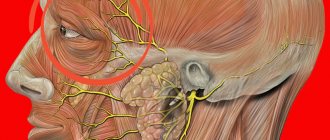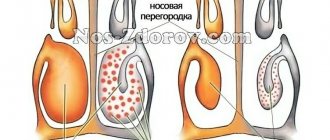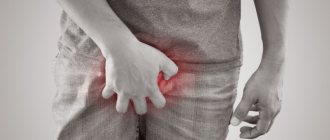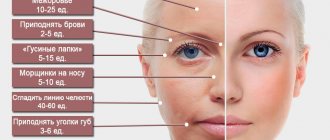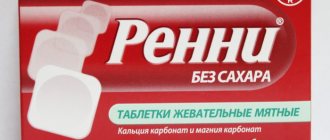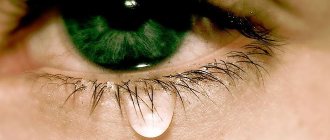How to sneeze correctly
Standards of behavior were created not only to support the sick person, but also to protect others from infection.
Therefore, according to the rules of etiquette when sneezing, you need to:
- Do this as quietly as possible. You need to try not to make loud noises only during official events. This is important because of air speed: when a person sneezes loudly, pathogens travel further and are more likely to infect others.
- Cover your mouth with your hand or a napkin. The rule must be followed for the same reason as in the previous paragraph.
- Turn away from your interlocutor. It is also acceptable to tilt your head. In addition to the risk of infecting a stranger, you can splash him with drool, which is a priori bad form.
- Apologize to your interlocutor. This should only be done at formal meetings or social events.
It all starts in the nose, but happens in the head
If you want to be considered a scientist, you might want to remember the official term in Latin: sneezing is called “sternutation.” When this happens, two processes take place at once. The first is respiratory, which is the stimulus that causes sneezing. You are probably familiar with this sensation; it can resemble a tickling in the nose, and sometimes is even accompanied by discomfort in the stomach. When you start to feel something like this, this is a signal of a sneeze, which will be caused by the work of the nerve that connects the nose to a certain part of the brain responsible for the reflex response. Not only the respiratory system is involved in the work, but also the blood circulation and muscles. Surprisingly, the brain region responsible for sneezing was identified thanks to a patient with a numb face who could not sneeze or yawn. Scientists discovered damaged nerves in her brain and determined that they were responsible for certain reactions in the body.
Meaning of the phrase be healthy while sneezing
According to the rules of etiquette, in most countries it is customary to wish for health due to the history of the tradition.
There are 3 versions of her birth:
- Biblical. In ancient times, people believed that a person sneezes only once and at the same time “exhales” his life. Therefore, they told him special words of encouragement, reminding him that the cause could be a mild illness that did not precede death.
- Chronicle. Novgorodians in Rus' believed that they wished health not to the person who sneezed, but to the guardian angel who has protected him since birth.
- Plague. Since sneezing is a symptom of the most dangerous disease of antiquity, each of its manifestations was necessarily supplemented with a phrase of support from loved ones. So the person still had hope that he would recover.
In addition, the wish for health depends on the situation. For example, it is customary to say, “Good health to the drinker,” to someone who is trying to quench his thirst during extreme heat after walking down the street. The phrase is used only if there is water in the glass.
Such parting words are unacceptable if alcohol is poured into the mug.
Why is the sneeze reflex formed?
Sneezing occurs when the mucous membrane that lines the sinuses is excited. The causes of sneezing in adults, as well as in children, may lie in allergies to the presence of:
- fluff, dust, pet hair (so-called “dust factors”);
- fungi, pollen, keratinized skin particles (allergens).
Important.
Volatile substances such as perfumes and tobacco smoke can also be the causative agent.
Sneezing can occur due to a sharp change in temperature (for example, if a person goes out into the cold from a warm building), or sudden exposure to bright sunlight that forces the eyes to close their eyes.
Often the sneezing reflex is a symptom of an allergic and acute respiratory viral disease.
Female representatives in the prenatal position often complain of a sneezing reflex and difficulty breathing. They experience swelling of the nasal mucous membranes, and their health worsens. This is due to changes in hormonal levels, this phenomenon is called “pregnant rhinitis”.
When is it rude to say “Bless you” when sneezing?
In society, one cannot mention the physiological characteristics of a person. These include sneezing.
You cannot say “Be healthy” in:
- bus, tram, minibus;
- cinema;
- restaurant;
- hospital;
- university, school, college;
- theater
You should also refrain from such phrases at work.
It is especially impolite to wish for health during a meeting, thereby interrupting the speaker.
Sneezing and runny nose without fever: causes and treatment
If you suddenly start sneezing a lot, it means that copious mucus discharge from the nose will soon appear. Doctors say that these are two directly interrelated processes. Constant sneezing is almost always accompanied by rhinitis. These signs begin either simultaneously or alternately, depending on the disease.
To get rid of them, first identify the causes of their occurrence, and then look for possible methods of treatment. If the appearance of snot and sneezing is caused by ARVI, then therapy is carried out using antipyretic and anti-inflammatory drugs. However, what should you do if these symptoms occur without fever? How to treat an unpleasant condition? Let's figure it out.
Causes of sneezing and runny nose in the morning
Sneezing and snot are primarily a protective reaction of the human body at the reflex level, thanks to which it is possible to get rid of microparticles that have entered the nasopharynx. The process itself is aimed at freeing the airways from irritants.
Unpleasant symptoms in the morning can occur due to:
Hypothermia. If the room was too cold at night or there were drafts, then as the body becomes hypothermic, snot and nasal congestion often appear. Allergic reaction to fur. If there are animals in the apartment, then it is possible that such symptoms in the morning are associated with a reaction the body to produce allergens to their fur.
Allergic reaction to dust. Regardless of how often the apartment is cleaned, no one can completely get rid of dust. Especially a lot of it accumulates in bed linen, blankets and pillows, so the appearance of rhinitis in the morning can be associated precisely with an allergy to dust. Chronic rhinitis. Discharge of mucus from the nose appears mainly in the morning.
During the day they stop, but the inflammation remains, so constant signs of the disease continue in the morning for quite a long time. Allergic reactions to flowering in the spring-summer period. Profuse flow from the nasal cavity during the flowering period of plants worries allergy sufferers mainly in the mornings.
They are not able to cope with an attack quickly, which greatly irritates the nasopharynx.
Frequent sneezing and runny nose. Causes
Sneezing and mucus discharge from the nose is the so-called protective mechanism of the body provided by nature. However, if these symptoms constantly bother you, then you should seek help from a specialist, since rhinitis is caused by both allergic reactions and chronic diseases.
If symptoms such as constant itching in the nose and sneezing, snot flowing, and watery eyes are clearly allergic in nature, then this is the body’s response to the production of allergens and there is nothing to be afraid of.
In this case, mucus, on the contrary, only helps to clear the nasal passages of microparticles that irritate it.
In the absence of fever and other complications, treatment with antihistamines (
Tavegil , Claritin , Suprastin ) is required.
If itching in the nostrils is caused by a cold, then treatment must be started immediately, otherwise you may accidentally infect others.
How to treat a runny nose and sneezing without fever in an adult?
This unpleasant condition can be treated with both folk remedies and medications. Therapy should be started when the first signs appear.
Among the folk remedies, adults can cope with the disease by drinking plenty of hot water and warming their feet in water with the addition of mustard. After the procedure, you need to wear warm socks, and place mustard plaster in each of them.
You can also try to treat nasal discharge without fever by inhalation using aromatic oils of eucalyptus, mint or lemon.
How to treat profuse flow besides traditional medicine? The following medications will help get rid of this problem with colds:
Vasoconstrictor drops and nasal sprays. Eliminate swelling of the mucous membrane and make breathing easier. These include Nazivin, Tizin, Sanorin and others. Drugs should not be dripped or sprayed for longer than seven days to avoid addiction.
It is important to know that vasoconstrictor drops cannot be used during pregnancy and with a chronic disease such as atrophic rhinitis. Sprays and drops that have a moisturizing effect. They promote the separation of mucus.
Moisturizing preparations such as Aqualor, Aquamaris and other preparations that contain sea water are usually used as an addition to the main therapy. Their beneficial components help stimulate the function of the respiratory glands. Antiviral nasal drops.
These medications are mainly used to prevent colds or at the initial stage of the disease. Thanks to them, the development of infection in the nasopharynx is prevented. Such drugs are usually used to stop the sneezing process in acute rhinitis.
Antiviral drops Grippferon, Interferon are taken when the first symptoms of ARVI and influenza occur. Homeopathic medicines in the form of drops, tablets and sprays They are made on the basis of essential oils and have a refreshing and antiseptic effect.
Homeopathic medicines Tonsilgon, Larinol, Edas-131 are recommended for use for all types of inflammatory diseases of the respiratory tract. They eliminate swelling of the mucous membrane and have an antiviral effect on the entire body as a whole. Antibacterial agents. They are produced mainly in the form of aerosols for the treatment of the upper respiratory tract, which have an antibacterial effect. Popular medications such as Bioparox and Isofra act on a specific area, so they can be used even by pregnant women and children.
Sneezing and runny nose without fever in a child
Frequent sneezing in a child without fever is usually accompanied by slight mucus secretion and congestion. This is how ARVI manifests itself in children. You can restore normal breathing to your child using special vasoconstrictor drops.
If the baby constantly sneezes, but the sniffles do not flow, then the reason for this may be the presence of a dry crust on the mucous membrane. It prevents the baby from breathing freely. The formation of a crust is associated with excessively dry air in the room.
In fact, there are quite a lot of factors causing unpleasant symptoms in children. If the child is already of conscious age, then it is worth asking him to talk about what he feels. It is quite possible that the emerging inflammatory process is directly related to the cold. But the presence of an allergic reaction is also possible.
After all, it occurs suddenly, and it can be triggered by any allergen, be it the fur of a pet or the spring flowering of plants. Only a doctor can determine the cause of the first signs of the disease. Therefore, if you find them, do not delay going to a specialist, because this is a child who needs qualified help.
Sneezing and runny nose without fever during pregnancy
Copious mucus without fever in pregnant women, especially in the early stages, is a fairly common phenomenon.
These signs themselves are not dangerous during pregnancy if they do not become a chronic form of the disease. Rhinitis during the first month or at 7-10 weeks of pregnancy has virtually no effect on the fetus. Such symptoms are most dangerous in later stages.
A particular threat in the early stages of pregnancy is a viral or bacterial infection, accompanied by sneezing without fever. Indeed, during this period, taking almost all medications that make breathing easier is prohibited.
It is important to understand that due to congestion, the heart and lungs of a pregnant woman suffer greatly, since the nose is not able to perform its main functions. Therefore, the lungs cannot cope and are exposed to dangerous environmental influences.
Such an unsatisfactory condition for the expectant mother poses a double threat. After all, not only her body suffers, but also the organs of the child growing inside her. If a pregnant woman is unable to breathe through her nose due to illness, then the baby develops oxygen starvation, which negatively affects its development.
Rhinitis can also lead to changes in taste, sense of smell and allergies. The difficulty of therapy lies in the fact that a pregnant woman is prohibited from using vasoconstrictor drops.
How to treat this unpleasant condition during pregnancy in this case?
Before starting treatment, a pregnant woman needs to see a specialist who can determine the cause of these symptoms and prescribe proper treatment.
But if you temporarily cannot go to the doctor, then you need to use moisturizing sprays based on sea water that are approved during pregnancy or use traditional medicine recipes so as not to harm yourself and the unborn baby. Let the doctor prescribe everything else.
Among traditional medicine recipes for the treatment of nasopharynx during pregnancy, drops made from carrot or apple juice are ideal. They should be instilled no more than 4 times a day, 5-8 drops.
Severe runny nose and sneezing what to do if you have a cold
A cold, as a rule, always manifests itself as a strong flow from the nasal cavity, sneezing and congestion. The reason for this is a viral infection that has entered the body.
It provokes inflammation, which increases the penetration of fluid from the blood vessels into the nasal cavity several times.
As a result, swelling of the mucous membrane occurs, which prevents the penetration of free air flow.
To alleviate such symptoms during an acute respiratory viral infection, it is necessary to drink as much warm fruit drinks, compotes, and teas as possible. You should also be sure to ventilate the room several times a day and humidify the air. For treatment, it is advisable to use saline solutions and aerosols based on sea water, as well as vasoconstrictor sprays.
Sneezing and runny nose allergies as the culprit
If allergies and sneezing occur, it is imperative to take antihistamines such as Claritin, Zyrtec and others to improve overall well-being. In some cases, specialists additionally prescribe vasoconstrictor sprays, for example, Vibrocil, as well as hormonal ointments.
How to cause a runny nose and sneezing?
No matter how strange it may sound, there are situations when it is simply necessary to cause a severe runny nose in order not to go to an important event. So, it won’t be difficult to provoke similar symptoms at home if you know how to do it.
Today, there are several ways by which you can easily simulate a cold, as well as redness of the eyes and watery eyes.
- Cut a peeled onion and inhale the cuts until it produces juice. You can supplement the procedure by washing with laundry soap, so that its foam gets into your eyes.
- Apply ground pepper or star balm outside to the nasal passages, and drop a little Kalanchoe or aloe juice inside, which is guaranteed to cause unpleasant symptoms, but will not burn the mucous membrane.
- To simulate a sneezing attack, just smell ground black pepper.
- A concentrated saline solution is also suitable for artificially inducing a cold at home and starting sneezing.
- You can also try using special snuff as a mucosal irritant.
There are many ways by which ARVI symptoms can be artificially provoked. But they all have a short-term effect. However, it is important to understand that you should not use these methods too often to avoid serious health problems.
Sneezing and runny nose without fever, causes and treatment: video
Source: https://lechim-gorlo.ru/nasmork/chihanie-i-nasmork-bez-temperatury-prichiny-i-lechenie
Why does a person sneeze?
In fact, the act of sneezing is essentially a protective unconditioned reflex, just like coughing.
Our body needs it to effectively clean the upper respiratory tract of dust particles, mucus and other irritants.
Sneezing is accomplished by accelerated (forced) exhalation, which is carried out mostly through the nasopharynx. Before we sneeze, we reflexively take a short breath.
Most often, sneezing occurs once or twice. If a person sneezes constantly, most likely this symptom is caused by some kind of health problem.
How to get rid of it with traditional medicines?
Folk remedies for the treatment of sneezing can be used in combination with traditional medicine. If the unpleasant symptoms are caused by ARVI, at home you can:
- Rinse your nose with decoctions of medicinal herbs, such as chamomile or calendula.
- Carry out inhalations with decoctions and infusions of medicinal herbs. They may be based on eucalyptus, chamomile, calendula and sage. Essential oils can also be used for inhalation, for example, fir, eucalyptus, cedar, etc. It is worth noting that inhalation cannot be carried out at temperature.
- Drip a decoction of oak bark into your nose. This remedy has a powerful anti-inflammatory and astringent effect, helping to get rid of runny nose and sneezing.
- Take general restoratives, for example, chamomile tea with honey, echinacea tincture (15 drops 3 times a day), rosehip infusion, a mixture of aloe juice and honey (in equal parts).
It is important to remember that each of the traditional medicines can cause reactions of individual intolerance. If you have allergies, such recipes are not recommended.
Source: https://elaxsir.ru/simptomy/drugie/pochemu-chelovek-chixaet-xorosho-ili-ploxo-mnogo-raz-podryad-pri-prostude-i-bez-prichiny.html
Sneezing during pregnancy
If a woman is expecting a baby, you can use more than just the standard phrase. The chronicle version is more suitable: “Good health to the guardian angel.” This phrase is addressed not only to the future newborn, but also to his mother. Previously, it was believed that protecting pregnant women was doubly difficult, because you had to save two at once. Therefore, a cultured person should support the work of the guardian, wishing him well in order to fulfill his duty.
There is no need to say “Be healthy” to a stranger or send wishes to her guardian angel, even if she is pregnant. Regardless of the situation, this will be in bad form.
How to make a child or adult sneeze
Sneezing is, of course, a reflex of the human body, in which the airways are cleared of mucus and irritants through a sharp forced release of air, preceded by a deep breath. Usually sneezing occurs spontaneously; it happens with a cold or runny nose. But in some cases it needs to be provoked. Here we are most often talking about children who find it difficult to tolerate hygienic procedures to cleanse the nasal cavity of mucus, as well as instillation of nasal passages to facilitate breathing. It is for this reason that most parents think about how to make their child sneeze.
Sneezing is considered one of the most effective methods of clearing mucus from the nose during a runny nose in infants who cannot yet blow their nose on their own.
Reviews about the phrase
Maria, 19 years old, Novy Urengoy: “It’s strange that you need to ask for forgiveness for the uncontrollable reactions of the body. It turns out that if a person sneezed in a public place and did not apologize, then he is uncultured. At the same time, wishing him health is also wrong. There are too many conventions for one action.”
Stanislav, 29 years old, Vladivostok: “I have suffered from allergies since childhood. The obsessive “Be healthy” sometimes infuriates you, because even after the 100th sneeze, those around you consider it necessary to say something. At the same time, the person receiving the wishes must say “Thank you,” and during the next attempt to hold his breath it is difficult to do this.”
Alevtina, 33 years old, Gelendzhik: “I am well-mannered by nature, so at meetings it can be difficult to remain silent when someone sneezed. After this, an unpleasant feeling of guilt remains. Sometimes conventions are unnecessary. Moreover, wishing you health is always good, regardless of place and time.”
Causes
The main reasons for frequent sneezing are allergies and respiratory diseases. Severe irritation of the nasopharyngeal mucosa can be caused by the following factors:
- Toxins that form on the nasopharyngeal mucosa due to the life and reproduction of pathogenic microorganisms. If a person sneezes repeatedly and without interruption, this may be the first symptom of a respiratory disease. In this case, there are other symptoms of a cold - runny nose, sore throat and severe weakness.
- Allergens. Household dust, plant pollen, animal fluff and some food products can act as irritants. Allergies are almost always accompanied by lacrimation and runny nose, with water leaking from the nose.
- Strong odors from perfumes, household chemicals and some chemicals can lead to intense sneezing and coughing. Tobacco smoke and excessively polluted air can cause sneezing. Often a person begins to sneeze heavily after walking near a busy highway.
- Foreign bodies in the nose. Frequent sneezing can occur if a piece of dandelion fluff or some small object gets into your nose. While playing, small children often stick various small objects into their noses, which can also provoke a sneeze reflex.
If your child has snot leaking from one nostril and sneezes frequently, you should consult an ENT doctor. Perhaps the cause of this phenomenon was a small bead stuck in the nose.
- Sneezing can be triggered by sudden changes in temperature. For example, when leaving the house to go outside in winter.
- The sneezing reflex occurs when a person looks at the bright sun. This can be explained by the fact that bright rays irritate the eyes, and they begin to water; tears are partially removed through the lacrimal canaliculi into the nose and irritate the nasopharyngeal mucosa.
Sneezing and the subsequent discharge of mucus is a normal reaction of the body and does not require treatment. But this phenomenon can be considered normal only if the manifestations of the sneeze reflex are not too frequent. If such a condition occurs frequently, then we can talk about some kind of pathology.
If the cause of this phenomenon is an allergy, then the person’s nasal mucosa will itch and the eyes will water. In addition, skin rashes of various types may appear. Recognizing an allergy is often not difficult. All symptoms of an allergic reaction occur after walking near flowering plants, playing with animals, or being in a dusty room. Some foods and household chemicals can trigger an allergic attack.
If the cause of the sneezing reflex is a cold, then in addition to this the person will be bothered by a high temperature, sore throat and general malaise. In this case, sneezing cannot be called harmless.
If you pay attention to this sign in a timely manner, you can quickly begin treatment and prevent the spread of infection throughout the body.
When sneezing, you should not pinch your nose, as the air pressure at this time is high, and damage to the eardrum may occur. In addition, improper sneezing can spread infection to the paranasal sinuses.
Methods that cause sneezing
To find out the benefits and harms of sneezing, let’s turn to the wise Chinese. According to Eastern beliefs, with the help of sneezing, people expel cold and viruses from the body, preventing them from occupying the body. Sneezing and rinsing the nasal cavity improves well-being and prevents the body from getting sick. What European doctors recommend, from the Chinese point of view, is harmful to humans. Medicines prescribed to children and adults are designed to reduce the symptoms of a runny nose and sneezing, preventing bacteria from getting out.
Modern doctors are also of the opinion that sneezing is beneficial. It’s another matter if the condition becomes obsessive and bothers you every day. This means that the body is trying to draw a person’s attention to eliminating the problem: the proximity of a possible allergen, an incipient disease, or an uncomfortable air temperature.
It must be remembered that sneezing is a symptom of the disease that caused it. Therefore, it is necessary to treat the disease itself first.
Frequent sneezing during a cold indicates a high viral load on the human body and greatly reduces the quality of life. In parallel with sneezing, as a rule, there are other symptoms such as:
- increase in body temperature (if there is no temperature, then this often indicates either good immunity or, conversely, very weak due to HIV infection, tuberculosis, diabetes, etc.
- Sneezing is always accompanied by a runny nose
- weakness, lethargy, headache
- cough
- a sore throat
- body and muscle aches
- nasal congestion
- loss of appetite
- watery eyes, itchy eyes
Treatment will be symptomatic. Appointed:
- Antiviral agents (groprinosin, anaferon, arbidol). They help improve general and local immunity. Stop the reproduction of the virus in the human body.
- When body temperature rises, antipyretic medications (paracetamol, ibuprofen, aspirin) are prescribed.
- For coughs and sore throats, lozenges with anti-inflammatory and expectorant properties (Dr. Mom, Lazolvan lozenges, lozenges with sage extract, Strepsils, Grammidin).
- Vasoconstrictor drops (Nazivin, Afrin, Naphthyzin) are prescribed for the nose. They reduce swelling of the nasal mucosa and make breathing easier. Such nasal drops are contraindicated for pregnant women and children. They can be used for no more than 7 days. Otherwise, addiction will develop.
- Salt solutions (Aquamaris, Aqualor, Marimer). Have no side effects. They remove crusts and excess mucus from the nose well, and remove accumulations of viruses and allergens.
- If a severe runny nose and sneezing during a cold does not go away with the above treatment, then antiallergic drugs (citrine, loratadine, Zyrtec) can be added to the treatment. They will relieve itching and swelling of the nasal mucosa.
- Drops that stimulate the immune system. For example, Derinat and IRS-19. They have a local immunostimulating effect.
- Vitamins have a general strengthening effect.
- Local antibacterial agents. They are available in the form of Bioparox and Isofra spray. They are often prescribed to pregnant and lactating women. Since they act exclusively at the local level and do not penetrate the systemic bloodstream.
- Homeopathic remedies. Widely used as an aid for colds. For example, such as tonsilgon, aflubin. They can also be prescribed to pregnant and breastfeeding women.
- Lubricating the wings of the nose with an asterisk also helps a lot. Its smell relieves itching and facilitates nasal breathing.
Folk remedies can also help stop sneezing when you have a cold. The most effective are carrot and beet juices, Kalanchoe juice and menthol oil. They are used in the form of drops two to three times a day.
Onion juice also helps a lot. It is also used finely chopped. The onion is kept in the room where the sick person is. It has disinfecting properties due to phytoncides in the air. You can rinse the nasal cavity with a saline solution with the addition of calendula or eucalyptus tincture.
Sometimes there are situations when it is inconvenient to sneeze. In such cases, the reflex reaction can be interrupted. To do this, rub the nasal septum, pressing the wings of the nose against it. This manipulation should not be resorted to often, since sneezing is aimed at cleansing the body.
Regular wet cleaning of the room and walks in the fresh air will help you get rid of sneezing and runny nose faster.
It is always easier to prevent than to treat later. Therefore, it is best to engage in prevention in the form of hardening, dress for the weather, get vaccinated against the influenza virus and lubricate the nasal cavity with oxolinic ointment. Avoid crowded places during an epidemic.
If your runny nose and sneezing do not go away within a week, you should seek help from an ENT doctor.
The same Chinese consider sneezing not just useful, but necessary for health. They are convinced that this reflex must be intentionally evoked. Special techniques have been invented for this. The mechanism is to irritate the mucous membrane of the nasopharynx, provoking a reflex sneezing. These methods will help in the fight against an impending cold.
When a red nose, along with periodic irritation of its mucous membrane, is accompanied by diarrhea, or discomfort in the muscles, legs, ribs, spine, or other unpleasant sensations, then it’s time to consult a doctor. You need to act in the same way when there is pain in the ovaries after embryo transfer.
The first sign that the patient’s health has deteriorated and he is experiencing the development of some serious illness is an elevated temperature. In the classic picture, we are talking about ARVI, during which a viral infection stimulates the development of favorable bacterial flora on the mucous membranes of the body. Pathogenic microorganisms especially often colonize the oronasal cavity, trachea, and bronchi.
Among them, the leaders in the “popularity” rating were:
- hemophilus influenzae;
- pneumococci;
- staphylococci.
Also, one should not exclude the scenario when worms undermine the body’s immunity, or chronic exhaustion due to HIV, which makes the body an excellent target for acute respiratory infections. Health is undermined by conditions after surgery, during hormonal changes, with tuberculosis, during pregnancy in the 1st and 2nd trimester, after a miscarriage, and with chickenpox.
When pathological pathogens settle on the nasal mucosa, they provoke rhinitis. And when they go lower, it begins:
- laryngitis;
- pharyngitis;
- tracheitis;
- bronchitis;
- pneumonia.
Against the background of sneezing, when it seems as if someone has put snuff under your nose, and you notice difficulty breathing, you cannot put off a visit to the doctor. You should not prescribe any pharmaceutical powder yourself, do inhalations, or take plant decoctions, no matter how useful they are. Otherwise, the consequences of self-medication with homeopathy ultimately lead to hospitalization of the victim in intensive care.
When trying to figure out what is happening on their own, people only stop local symptoms, forgetting that they need complex therapy.
All this leads to the fact that first the nasopharynx becomes inflamed, and then:
- pharynx;
- larynx;
- lower respiratory tract.
No medicine will help here, and hospitalization will be required. Treatment will be aimed at eliminating the secondary increase in body temperature, neutralizing lethargy, general intoxication, and suppressing psychomotor agitation, which causes chest pain.
When it comes to babies who are capricious and refuse to eat, you should be vigilant. When babies lose their appetite, the risk of getting an ear canal infection increases. Due to otitis media, the baby experiences incessant pain during the chewing or swallowing reflex, which forces him to refuse food.
When the nose is dry at the same time, but at the same time there is copious discharge when blowing the nose, this often indicates a classic ARVI. Symptoms may vary slightly, since modern medicine has about two hundred varieties of this disease. Adding to the complexity is the fact that strange tickling, along with all other signs of damage, is transmitted by airborne droplets, affecting everyone in its path, regardless of age.
https://www.youtube.com/watch?v=ytdevru
Similarities of all ARVI formats, in addition to frequent sneezing, include:
- runny nose;
- temperature increase;
- sore throat;
- cough;
- weakness;
- malaise.
But the differences cover the body’s ability to resist pathogens and the presence of previously discovered chronic pathologies. In some victims, the disease develops in a very specific manner, including soreness of the tailbone, copious amounts of saliva, and rapid heartbeat. To speed up the recovery process, you must consult a doctor and undergo laboratory testing to eliminate the risks of more serious pathologies such as neoplasms in the sternum.
The main therapy is aimed at strengthening the immune system with a concomitant weakening of local symptoms. For this it is recommended:
- adhere to the rules of bed rest;
- do not restrain yourself from sneezing using disposable tissues;
- ensure restoration of water balance by drinking warm drinks.
In the latter case, tea, fruit juice, chicken broth, and pharmacy infusions are excellent. But if you want to use herbal teas, you must first check the effect of each of them. Otherwise, you can still develop an allergy along the way.
Separately, you will need to take antipyretic medications. Only the attending physician can tell which drug is suitable for this purpose. But if such popular measures did not have the desired effect on the second day, and the pain began to radiate to the back of the head and it was still pouring from the nose, then you will need to seek help again. As your health worsens, the chances of rapid development of complications increase, which, if ignored, can even lead to death.
It is a mistake to believe that at the first signs of pathology discovered in yourself, you should drink vodka, tincture, liqueur, or other alcohol-containing drinks. With alcohol intoxication, the clinical picture is even more blurred, which will add difficulties to medical personnel in the future.

